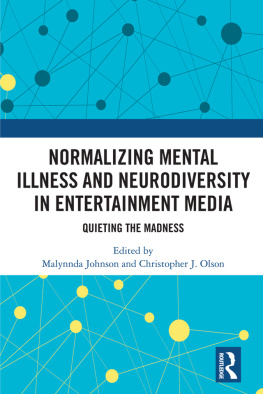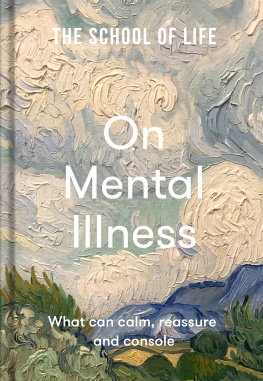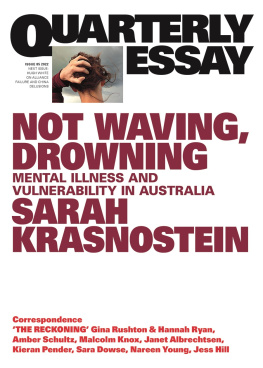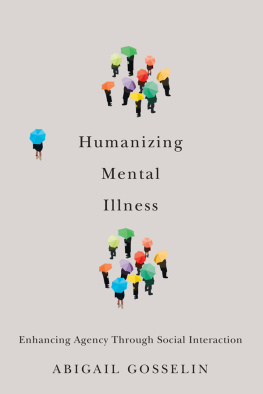Normalizing Mental Illness and Neurodiversity in Entertainment Media
This volume examines the shift toward positive and more accurate portrayals of mental illness in entertainment media, asking where these succeed and considering where more needs to be done. With studies that identify and analyze the characters, viewpoints, and experiences of mental illness across film and television, it considers the messages conveyed about mental illness and reflects on how the different texts reflect, reinforce, or challenge sociocultural notions regarding mental illness. Presenting chapters that explore a range of texts from film and television, covering a variety of mental health conditions, including autism, post-traumatic stress disorder (PTSD), depression, and more, this book will appeal to scholars of sociology, cultural and media studies, and mental health.
Malynnda Johnson is an assistant professor of Communication at Indiana State University, USA, and the author of HIV on TV: Popular Cultures Epidemic.
Christopher J. Olson is completing his doctoral research at the University of WisconsinMilwaukee, USA. He is the co-author of Possessed Women, Haunted States: Cultural Tensions in Exorcism Cinema and the co-editor of Making Sense of Cinema: Empirical Studies into Film Spectators and Spectatorship; Heroes, Heroines, and Everything in Between: Challenging Gender and Sexuality Stereotypes in Childrens Entertainment Media; and Convergent Wrestling: Participatory Culture, Transmedia Storytelling, and Intertextuality in the Squared Circle.
Normalizing Mental Illness and Neurodiversity in Entertainment Media
Quieting the Madness
Edited byMalynndaJohnsonandChristopher J.Olson
First published 2021
by Routledge
2 Park Square, Milton Park, Abingdon, Oxon OX14 4RN
and by Routledge
52 Vanderbilt Avenue, New York, NY 10017
Routledge is an imprint of the Taylor & Francis Group, an informa business
2021 selection and editorial matter, Malynnda Johnson and Christopher J. Olson; individual chapters, the contributors
The right of Malynnda Johnson and Christopher J. Olson to be identified as the authors of the editorial material, and of the authors for their individual chapters, has been asserted in accordance with sections 77 and 78 of the Copyright, Designs and Patents Act 1988.
All rights reserved. No part of this book may be reprinted or reproduced or utilised in any form or by any electronic, mechanical, or other means, now known or hereafter invented, including photocopying and recording, or in any information storage or retrieval system, without permission in writing from the publishers.
Trademark notice: Product or corporate names may be trademarks or registered trademarks, and are used only for identification and explanation without intent to infringe.
British Library Cataloguing-in-Publication Data
A catalogue record for this book is available from the British Library
Library of Congress Cataloging-in-Publication Data
A catalog record for this book has been requested
ISBN: 978-0-367-82052-7 (hbk)
ISBN: 978-0-367-76225-4 (pbk)
ISBN: 978-1-003-01166-8 (ebk)
Typeset in Times New Roman
by Apex CoVantage, LLC
The editors would like to dedicate this book to all the creators attempting to quiet the madness by producing positive, honest, and accurate media depictions of mental illness and neurodiversity.
Contents
- 2 Remember what Dr. Lopez said: portrayals of mental health care in Nickelodeon's The Loud House
- 3 And I suffer from short-term memory loss: understanding presentations of mental health in Pixar's Finding Nemo and Finding Dory through communication theory of identity
- 4 Family narratives and mental illness in This Is Us
- 5 Cognitive differences in Star Trek: the case and evolution of Reginald Barclay
- 6 Popular culture and the (mis)representation of Asperger's: a study on the sitcoms Community and The Big Bang Theory
- 7 Psychopath, sociopath, or autistic: labeling and framing the brilliance of Sherlock Holmes
- 8 When Saga Norn meets neurotypicality: a liminal encounter along The Bridge
- 9 The girl on the swing: an analysis of cues and depression in Joe Wright's Pride and Prejudice (2005)
- 10 Depictions of depression and eating disorders in My Mad Fat Diary
- 11 Portraying real feelings with comedy on top: postpartum depression storylines and domestic sitcoms
- 12 Ruby Wax: comedy, celebrity capital, and (re)presentations of mental illness
- 13 Post-traumatic stress disorder in the films Taxi Driver and You Were Never Really Here: a comparative progressive approach
- 14 Bipolar and Shameless: showtime's portrayal of living and working with bipolar disorder
- 15 Wrestling with eating disorders: transmedia depictions of body issues in WWE's women's professional wrestling
- 16 Conclusion: destigmatizing mental illness and neurodiversity in entertainment media
- 2 Remember what Dr. Lopez said: portrayals of mental health care in Nickelodeon's The Loud House
- 3 And I suffer from short-term memory loss: understanding presentations of mental health in Pixar's Finding Nemo and Finding Dory through communication theory of identity
- 4 Family narratives and mental illness in This Is Us
- 5 Cognitive differences in Star Trek: the case and evolution of Reginald Barclay
- 6 Popular culture and the (mis)representation of Asperger's: a study on the sitcoms Community and The Big Bang Theory
- 7 Psychopath, sociopath, or autistic: labeling and framing the brilliance of Sherlock Holmes
- 8 When Saga Norn meets neurotypicality: a liminal encounter along The Bridge
- 9 The girl on the swing: an analysis of cues and depression in Joe Wright's Pride and Prejudice (2005)
- 10 Depictions of depression and eating disorders in My Mad Fat Diary
- 11 Portraying real feelings with comedy on top: postpartum depression storylines and domestic sitcoms
- 12 Ruby Wax: comedy, celebrity capital, and (re)presentations of mental illness
- 13 Post-traumatic stress disorder in the films Taxi Driver and You Were Never Really Here: a comparative progressive approach
- 14 Bipolar and Shameless: showtime's portrayal of living and working with bipolar disorder
- 15 Wrestling with eating disorders: transmedia depictions of body issues in WWE's women's professional wrestling
- 16 Conclusion: destigmatizing mental illness and neurodiversity in entertainment media
Guide
Malynnda wishes to thank Jessica Benham for her ability to inspire and educate others about neurodiversity. Jessica is doing incredible frontline work and has forever impacted Malynndas life. Christopher wishes to thank his partner, CarrieLynn D. Reinhard, for her love, support, and assistance throughout the process of putting this anthology together. As always, I would not be where I am today without you, and I am forever grateful to have you by my side. Finally, we would both like to thank Neil Jordan at Routledge for helping us take this project from dream to reality.
| 2.1 Portrayals of Dr. Lopez and/or psychotherapy in The Loud House |












